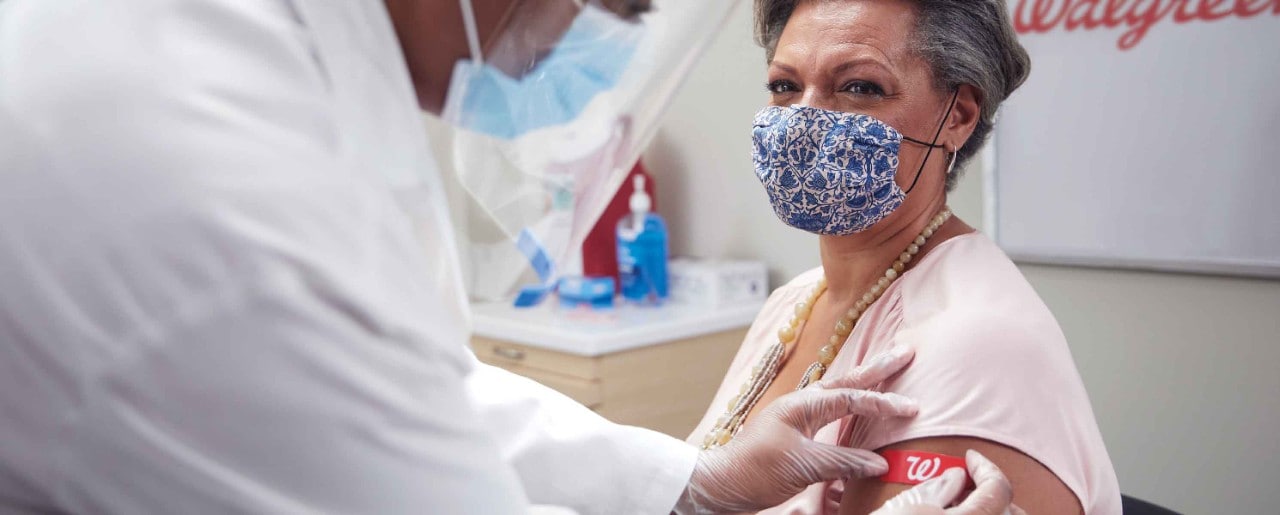Health
High-risk for COVID-19? Here’s what you need to know
By Loren M. Blinde, PhD Oct 21, 2025 • 3 min
If you’re 65 or older or have certain health conditions, you may be in a high-risk group that is eligible for a coronavirus disease 2019 (COVID-19) vaccine. Current COVID-19 vaccines are approved by the U.S. Food and Drug Administration (FDA) and include protection against both the original virus and several variants. Getting vaccinated can give you the best chance of avoiding getting really sick, needing to be hospitalized, or even dying as a result of a COVID-19 infection.
Who is at higher risk of getting severely ill with COVID-19?
People are at higher risk of getting very sick with COVID-19 and other respiratory viruses include people who are 65 or older, people with compromised immune systems and people with certain medical conditions. You can help protect yourself by getting vaccinated against certain viruses, which can include COVID-19, if you’re eligible. Ask your healthcare provider if you may be at higher risk and if the COVID-19 vaccine may be right for you.
High-risk group 1: People age 65 or older
The biggest risk factor for severe illness outcomes from COVID-19 is older age. That means if you’re 65 or older, no matter how healthy you are, you’re at higher risk of getting really sick, including needing to go to the hospital or needing a machine to help you breathe. The good news is that adults 65 and older who were fully vaccinated with a COVID-19 vaccine had a significant reduction in risk of COVID-19. However, immunity may lessen with time so check with your healthcare provider to see if you’re current with your vaccinations.
High-risk group 2: People whose immune systems don’t work well
The job of the body’s immune system is to stop illness-causing germs from getting into the body, to kill germs or to limit their effects if they do get in. Some people’s immune systems don’t work as they should, either because they have a certain medical condition or because they’re taking medications or treatments that prevent their immune system from working as it should.
People with a weakened immune system, also known as immunocompromised, are at greater risk of getting contagious illnesses such asCOVID-19, are more likely to get severely ill from them, and may take longer to recover.
High-risk group 3: People who have certain medical conditions
Some medical conditions can increase a person’s likelihood of getting really sick with COVID-19. Some of the medical conditions that can increase the risk of severe COVID-19 include:
- Neurologic conditions such as stroke, Alzheimer’s disease or dementia
- Cancer
- Chronic kidney and liver disease
- Chronic lung disease, such as asthma, tuberculosis or pulmonary hypertension
- Cystic fibrosis
- Diabetes
- Heart disease, such as heart failure, coronary artery disease and cardiomyopathy
- History of a transplant, whether solid organ or blood stem cells
- HIV
- Substance use disorders and mood disorders, such as depression and schizophrenia
- Obesity
- Pregnancy
- Blood disorders
- Sickle cell disease
- Stroke or cerebrovascular disease
Certain lifestyle factors
Smoking and physical inactivity can also put people at risk. You can take steps to support your immune system and overall health by eating a healthy diet, getting adequate sleep and regular exercise, and avoiding smoking or excessive alcohol intake.
Staying up to date with vaccinations
Getting vaccinated helps protect against serious illness. To find out if you may be eligible for a COVID-19 vaccine and other vaccines, speak with your Walgreens pharmacist. You can also chat with a Walgreens pharmacist or schedule your vaccination visit online. Visit Walgreens.com/ScheduleVaccine.
Clinically reviewed and updated October 2025.
Sources:
- https://www.cdc.gov/covid/hcp/clinical-care/underlying-conditions.html
- https://www.mayoclinic.org/diseases-conditions/coronavirus/in-depth/coronavirus-who-is-at-risk/art-20483301
- https://www.cdc.gov/yellow-book/hcp/travel-associated-infections-diseases/influenza.html
- https://www.lung.org/lung-health-diseases/lung-disease-lookup/influenza/symptoms-causes-and-risk
- https://www.cdc.gov/covid/risk-factors/index.html
- https://www.cdc.gov/respiratory-viruses/about/index.html
- https://medlineplus.gov/ency/article/000818.htm
